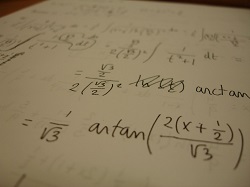Back in January, my school set upon a new initiative. The marking of core writing skills – that is, spelling, punctuation and grammar (or SPAG as us educators, who never shy away from a good acronym, like to call it) – was to be implemented across all departments. No longer just a proviso of the English faculty, now History teachers would have to check for syntactical errors in their students’ essays; Science teachers would have to ensure that methodologies and conclusions which came to them did so with the required requisite of full-stops and capital letters; Geography teachers would have to supervise not just the correct spelling of ‘oxbow lake’, but also the correct spelling of all the words which surrounded it in their pupils’ books.
This article is about how simple dances can be used to improve student learning about complex cellular processes. The dances are easy to follow and bring complicated topics to life. They help students learn about processes and terminology which they might otherwise find difficult, dry or hard to remember. The dances afford a multisensory approach to learning; they are a fusion of art and science and a blend of fun and serious biology.
What can pupils get out of studying space travel? Teachers and organisers are teaming up in order to help students discover the cosmos, as well as giving insight into the working lives of astronauts. Kulvinder Johal, assistant headteacher at Northbury Primary School in Essex, recounts her experiences with Mission X over the last 18 months, and discusses how it has benefitted her pupils.

If you had told me two years ago that I would be off to Science Learning Centre in York to collect the Space Education Quality Mark - Gold standard, I would have said “What is that? Never heard of it.” Well I have now, and I am off to collect the award and also to present the space work we have undertaken, which has just been out of this world.
Much of the UK’s teaching community is currently trying to wrap their heads around the new computing curriculum. Bristol Robotics Lab’s Zan Nadeem is keen to stress how important she finds maths as a part of computer science.

An article this week on how bad UK students are at maths compared to Chinese students, to be honest, wasn’t surprising. What makes it an even larger problem is that, with the push towards teaching computer science in schools, this lack of maths knowledge is going to cause problems.
Trying to get students to look at programming problems in a mathematical way and to solve them by using common maths facts is currently a huge challenge – yet this is a vital skill that needs to be taught, from an early age, if the next generation are going to be any good at writing programs.

A community-driven platform for showcasing the latest innovations and voices in schools
Pioneer House
North Road
Ellesmere Port
CH65 1AD
United Kingdom